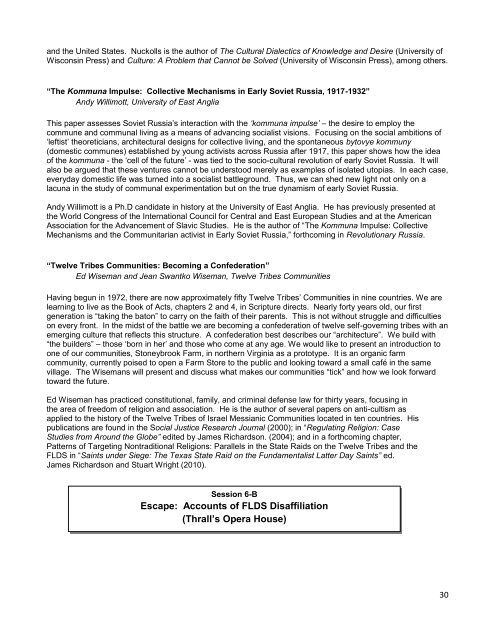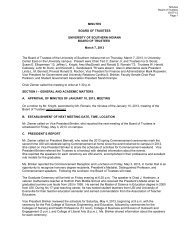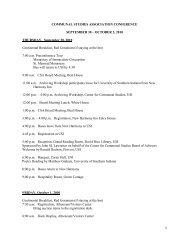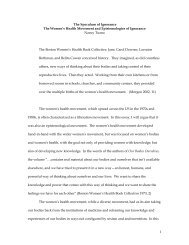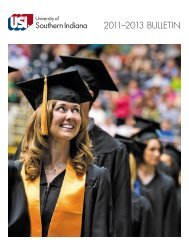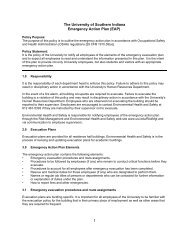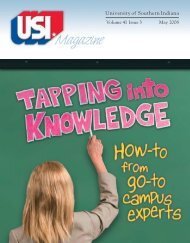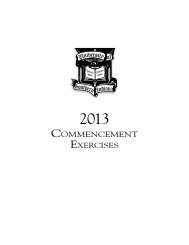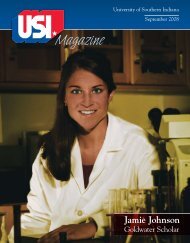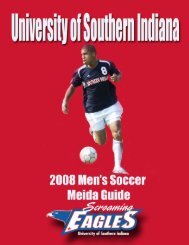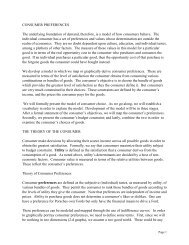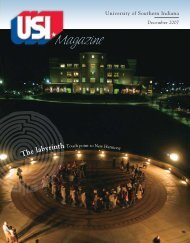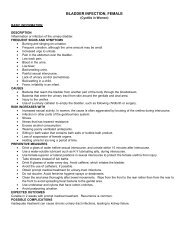Communal Studies Association, 2010 New Harmony, Indiana ...
Communal Studies Association, 2010 New Harmony, Indiana ...
Communal Studies Association, 2010 New Harmony, Indiana ...
You also want an ePaper? Increase the reach of your titles
YUMPU automatically turns print PDFs into web optimized ePapers that Google loves.
and the United States. Nuckolls is the author of The Cultural Dialectics of Knowledge and Desire (University ofWisconsin Press) and Culture: A Problem that Cannot be Solved (University of Wisconsin Press), among others.“The Kommuna Impulse: Collective Mechanisms in Early Soviet Russia, 1917-1932”Andy Willimott, University of East AngliaThis paper assesses Soviet Russia‘s interaction with the „kommuna impulse‟ – the desire to employ thecommune and communal living as a means of advancing socialist visions. Focusing on the social ambitions of‗leftist‘ theoreticians, architectural designs for collective living, and the spontaneous bytovye kommuny(domestic communes) established by young activists across Russia after 1917, this paper shows how the ideaof the kommuna - the ‗cell of the future‘ - was tied to the socio-cultural revolution of early Soviet Russia. It willalso be argued that these ventures cannot be understood merely as examples of isolated utopias. In each case,everyday domestic life was turned into a socialist battleground. Thus, we can shed new light not only on alacuna in the study of communal experimentation but on the true dynamism of early Soviet Russia.Andy Willimott is a Ph.D candidate in history at the University of East Anglia. He has previously presented atthe World Congress of the International Council for Central and East European <strong>Studies</strong> and at the American<strong>Association</strong> for the Advancement of Slavic <strong>Studies</strong>. He is the author of ―The Kommuna Impulse: CollectiveMechanisms and the Communitarian activist in Early Soviet Russia,‖ forthcoming in Revolutionary Russia.“Twelve Tribes Communities: Becoming a Confederation”Ed Wiseman and Jean Swantko Wiseman, Twelve Tribes CommunitiesHaving begun in 1972, there are now approximately fifty Twelve Tribes‘ Communities in nine countries. We arelearning to live as the Book of Acts, chapters 2 and 4, in Scripture directs. Nearly forty years old, our firstgeneration is ―taking the baton‖ to carry on the faith of their parents. This is not without struggle and difficultieson every front. In the midst of the battle we are becoming a confederation of twelve self-governing tribes with anemerging culture that reflects this structure. A confederation best describes our ―architecture‖. We build with―the builders‖ – those ‗born in her‘ and those who come at any age. We would like to present an introduction toone of our communities, Stoneybrook Farm, in northern Virginia as a prototype. It is an organic farmcommunity, currently poised to open a Farm Store to the public and looking toward a small café in the samevillage. The Wisemans will present and discuss what makes our communities ―tick‖ and how we look forwardtoward the future.Ed Wiseman has practiced constitutional, family, and criminal defense law for thirty years, focusing inthe area of freedom of religion and association. He is the author of several papers on anti-cultism asapplied to the history of the Twelve Tribes of Israel Messianic Communities located in ten countries. Hispublications are found in the Social Justice Research Journal (2000); in ―Regulating Religion: Case<strong>Studies</strong> from Around the Globe” edited by James Richardson. (2004); and in a forthcoming chapter,Patterns of Targeting Nontraditional Religions: Parallels in the State Raids on the Twelve Tribes and theFLDS in ―Saints under Siege: The Texas State Raid on the Fundamentalist Latter Day Saints” ed.James Richardson and Stuart Wright (<strong>2010</strong>).Session 6-BEscape: Accounts of FLDS Disaffiliation(Thrall‟s Opera House)30


